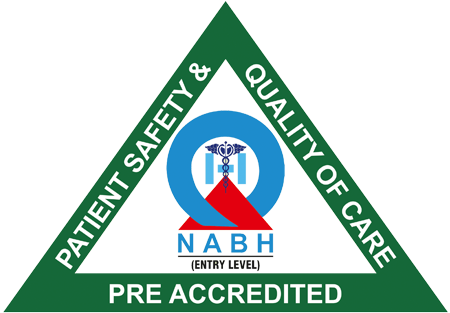Breastfeeding is one of the most natural and effective ways to nurture a newborn. While many people associate breastfeeding with benefits during early infancy, its positive impact extends far beyond the first year of life.
Did you know that breastfeeding reduces the risk of chronic diseases for both mom and baby, even decades later? Understanding the long-term advantages can be a motivating factor for many mothers.
Long-Term Benefits of Breastfeeding for the Baby
Breastfeeding is packed with health benefits that extend well into adulthood. Here’s a closer look at how it supports your baby’s lifelong well-being.
-
Stronger Immune System
Breast milk is rich in antibodies, enzymes, and other protective factors that strengthen your baby’s immune system right from birth. Breastfed babies have a lower risk of infections, including ear infections, respiratory illnesses, and gut issues, in infancy.
And here’s the exciting part — these benefits are long-lasting. Research shows that breastfed children are less likely to develop allergies, asthma, and autoimmune diseases.
For example, a study published in the Journal of Allergy and Clinical Immunology found that breastfeeding reduces the risk of eczema and allergic rhinitis in children.
-
Reduced Risk of Obesity and Diabetes
Breastfeeding has been linked to a healthier metabolism in later life. Breastfed babies are less likely to become overweight or obese during childhood and adulthood. Studies point to the role of breast milk in shaping better metabolic responses and regulating appetite.
Additionally, breastfeeding has been associated with a reduced risk of type 2 diabetes later in life, partly due to the lower prevalence of childhood obesity in breastfed individuals.
-
Better Brain Development and Higher IQ
Breast milk is a powerhouse of docosahexaenoic acid (DHA), an omega-3 fatty acid crucial for brain development, along with other essential nutrients. Studies have consistently found a link between breastfeeding and improved cognitive function.
Children who are breastfed tend to score higher on IQ tests and perform better academically. One study even reported a potential boost in intelligence in adulthood for those breastfed as infants.
-
Lower Risk of Chronic Diseases in Adulthood
The advantages don’t stop in childhood. Breastfeeding offers your baby long-term protection against chronic conditions like heart disease, hypertension, and certain cancers.
A study in The Lancet highlights how breastfeeding reduces the prevalence of heart disease and diabetes in adulthood. By giving your baby breast milk, you’re setting the foundation for a healthier future.
Experience exceptional maternal care at Shenoy Hospital, where expert doctors and a compassionate team ensure a smooth breastfeeding journey for you and your baby. Schedule your visit now!
Long-Term Benefits of Breastfeeding for the Mother
Breastfeeding isn’t just beneficial for your baby. It also provides numerous health benefits for mothers, both immediate and long-term.
-
Faster Postpartum Recovery and Weight Loss
Here’s a bonus for new moms! Breastfeeding helps your body recover after childbirth. It stimulates the production of oxytocin, a hormone that promotes uterine contractions, helping your uterus return to its pre-pregnancy size faster. Plus, breastfeeding burns about 500 extra calories per day, making it easier to shed pregnancy weight naturally.
-
Lower Risk of Breast and Ovarian Cancer
Did you know that breastfeeding significantly lowers your risk of breast and ovarian cancers? The hormonal changes triggered by breastfeeding reduce estrogen levels, which plays a key role in lowering cancer risk. Multiple studies, including one by the American Cancer Society, have confirmed the protective effect of breastfeeding on these cancers.
-
Lower Risk of Osteoporosis
Breastfeeding may reduce the risk of osteoporosis and bone fractures later in life. Though calcium levels may dip slightly during breastfeeding, the body compensates after weaning by replenishing bone density and even strengthening bones.
-
Reduced Risk of Heart Disease and Type 2 Diabetes
Breastfeeding isn’t just about short-term postpartum perks; it also offers significant long-term cardiovascular benefits. Mothers who breastfeed tend to have lower blood pressure, healthier cholesterol levels, and a reduced risk of heart disease. Additionally, it helps regulate blood sugar levels, lowering the risk of type 2 diabetes.
-
Emotional and Mental Health Benefits
Breastfeeding has profound effects on mental health due to the release of oxytocin. Known as the “love hormone,” oxytocin promotes relaxation, bonding, and emotional well-being.
Breastfeeding mothers have a lower risk of postpartum depression, and the close bond formed during nursing fosters long-term psychological benefits for both mother and child.
Your motherhood journey deserves the best start! Visit a leading maternity care center in Secunderabad for personalized lactation and postnatal care. Get expert support today!
FAQs: Answering Common Concerns
1. How long should a mother breastfeed to get the maximum benefits?
The WHO and AAP recommend breastfeeding exclusively for 6 months, then continuing with complementary foods for 1–2 years. Any amount of breastfeeding has benefits, so don’t worry if exclusive breastfeeding isn’t possible.
2. Can breastfeeding reduce the risk of diseases later in life?
Yes, breastfeeding helps prevent lifelong diseases. Breastfed babies are less likely to develop type 2 diabetes, heart disease, and obesity. Mothers who breastfeed also have lower risks of cancer, heart disease, and diabetes.
3. Does breastfeeding help with postpartum depression?
Breastfeeding can help reduce postpartum depression by releasing oxytocin, which promotes relaxation and bonding. If it causes stress, seek support or consider alternatives that work for your well-being.
4. What happens if a mother cannot breastfeed?
If breastfeeding isn’t an option, there are still great ways to make sure your baby gets all the nutrients they need. Infant formula is made to be just like breast milk, and donor breast milk is another option for parents who want those added benefits.
Why Breastfeeding Is an Investment in Health?
Breastfeeding is one of the most powerful decisions you can make for your family’s well-being. It’s more than just nourishment; it’s a lifelong gift of health. From lowering the risk of chronic diseases to fostering emotional connections, breastfeeding has far-reaching benefits for both mother and baby.
If breastfeeding feels challenging, don’t hesitate to seek out lactation consultants, support groups, or healthcare providers. They can guide you through the process, helping you and your baby thrive. Whether you breastfeed for a few weeks, months, or years, every drop counts. Celebrate the strides you make and know that you’re making an incredible investment in lifelong health.
Looking for the best hospitals in East Marredpally for expert maternity care? Choose a trusted Hospital for you and your baby’s well-being. Book a consultation today at 040-41519999 !
Share:



